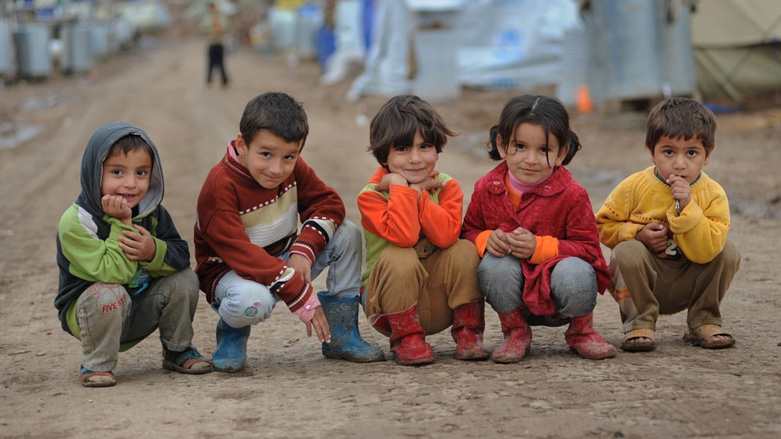Children’s lives considerably improved in Kurdistan Region, new survey reveals

ERBIL (Kurdistan 24) – The Kurdistan Region has made considerable progress in improving access to basic drinking water and sanitation facilities, but more needs to be done to improve access to education and ending all forms of violence against Children, according to a new survey on children’s well-being in Iraq referenced by the UN’s Children Fund.
The survey shows that 96 percent of children in the Kurdistan Region are attending primary school, and only 67 percent of children are attending lower secondary education. It also mentions that 37 percent of children from poorer backgrounds across the country complete education.
“Economic hardship, insufficient schools in rural areas and lack of transportation are just some of the factors that are keeping children from disadvantaged backgrounds from receiving an education that can transform their lives and that of their communities,” UNICEF Representative in Iraq Peter Hawkins said on Monday.
“Without urgent and sustained investment in education, children from the most vulnerable backgrounds will be left behind and this will have a negative impact not only on their families but society and the prosperity of the region,” he warned.
During an event held in Erbil, in which the result of the survey was revealed, the Kurdistan Region’s Minister of Planning, Ali Sindi, stated that the semi-autonomous region’s population has grown and reached 5.6 million people.
“Despite economic challenges in the last couple of years, the data highlights the progress made by the Kurdistan Regional Government [KRG] in improving access to basic services, including health services and access to safe drinking water,” Sindi said.
“This survey will further assist the government and its partners to identify and prioritize areas where additional investments are needed,” he added.
UNICEF called on the KRG to invest in services that directly benefit those children affected by conflict and poverty and to work toward putting an end to all forms of violence against children.
The survey data shows that the KRG has made notable progress providing primary health care, including maintaining high-levels of assisted births and reducing the number of newborns who die in the first month of life from 32 to 17 per 1,000 live births.
It also indicated that access to water and sanitation is universal with a 98 percent rate, but challenges remain to ensure all families have access to safe drinking water on-premise and free from harmful bacteria.
The Multiple Indicator Cluster Surveys (MICS) data were collected in 2018, where field workers from the KRG and the Federal Government of Iraq surveyed 20,520 households across the country.
Editing by Karzan Sulaivany
